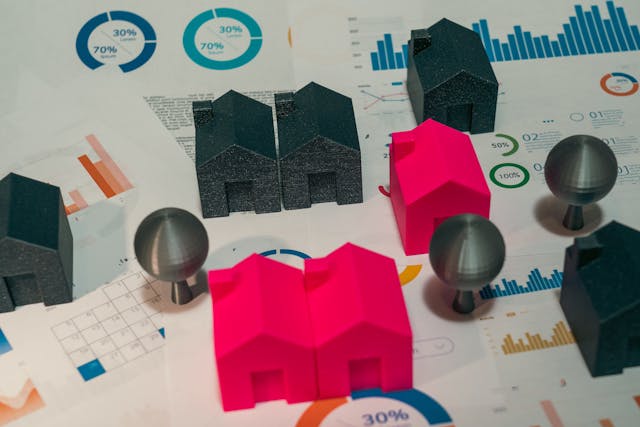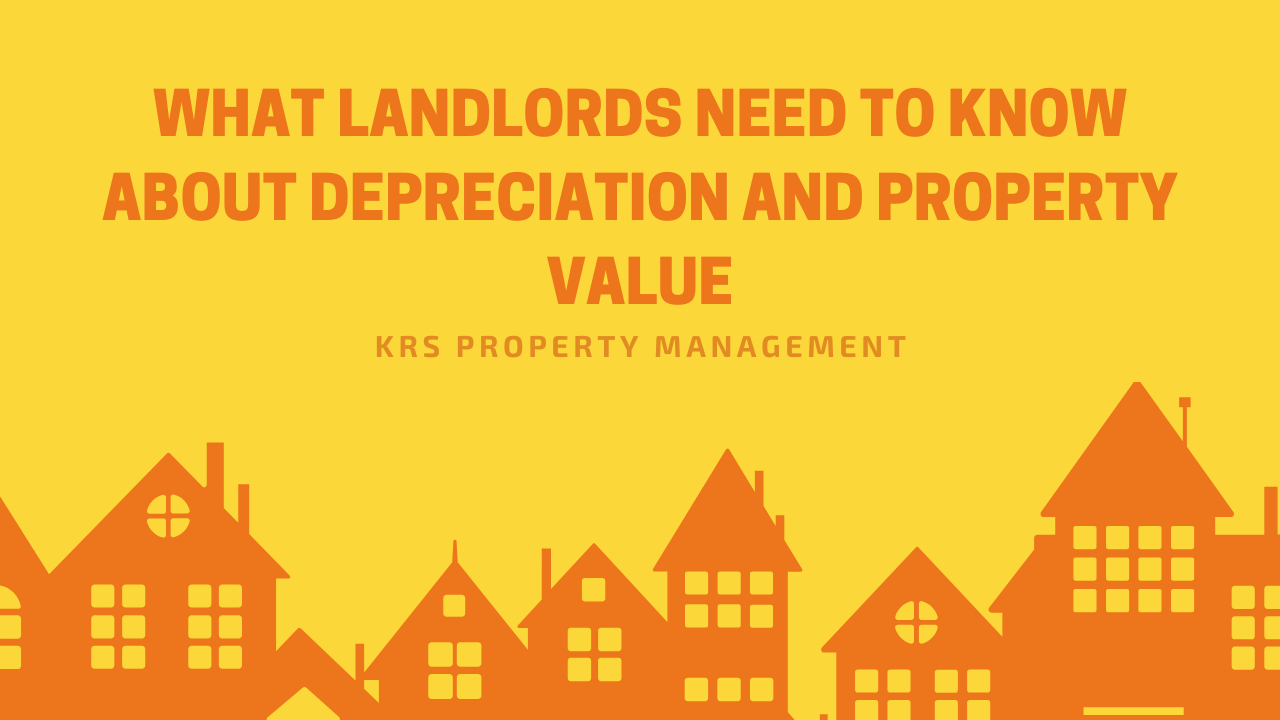Key Takeaways
Depreciation Lowers Your Taxable Income: It’s a key tool for landlords to recover costs over time and reduce how much income is taxed each year.
Only the Building Depreciates, Not the Land: You must separate land and building values to calculate depreciation correctly and stay compliant with IRS rules.
Know the Difference Between Repairs and Improvements: Repairs can be deducted immediately, but improvements must be depreciated—this affects your tax strategy and planning.
Depreciation Is Recaptured When You Sell: The IRS taxes the amount you’ve written off, so tracking everything properly now helps avoid surprises later.
Are you noticing that your property’s value isn’t growing as fast as you expected, or wondering how depreciation factors into your long-term investment goals? Understanding the balance between depreciation and property value can be confusing, especially when already focused on maintaining profits and planning future growth.
Whether you're new to real estate or have years of experience, it's essential to understand how these two concepts work together. At KRS Property Management in Raleigh, we help landlords navigate finances with confidence.
8 Must-Know Insights That Shape Your Property’s Worth Over Time
Understanding depreciation and property value isn’t just about numbers, it’s about knowing what affects your rental’s long-term financial health. Here are 8 key factors every Raleigh landlord should know.
1. Depreciation Basics
Depreciation is how the IRS allows you to account for the natural wear and tear on your rental property over time. As a landlord in Raleigh, understanding this concept helps you make better financial decisions and claim deductions that reduce your taxable income. So, what exactly is depreciated?
It’s not the land itself, but the building and any improvements that age or become outdated. Why does this matter? Because each year, you can recover a portion of your property’s cost through depreciation, which directly supports your long-term investment strategy. Knowing how depreciation works gives you a clearer picture of your real income and expenses.
2. Land vs. Building Value
One of the first things to understand about depreciation is that only the building, not the land, is eligible. If you’re a landlord in Raleigh, you might purchase a property for a total amount, but that price includes the structure and the land it sits on. The IRS requires you to separate those two values before you calculate depreciation.

Using the full purchase price without adjusting for land could lead to incorrect filings and tax issues. A property assessment will break down these values and help you apply depreciation correctly, ensuring your tax reporting is accurate and fully compliant.
3. Useful Life of Property
A property's “useful life” is the period over which the IRS allows you to depreciate the building. For residential rental properties, this is typically 27.5 years. If you're a Raleigh landlord and your building qualifies, you’ll divide its adjusted basis by 27.5 to determine the annual depreciation amount.
You’ll get a consistent deduction year after year, which helps offset rental income and reduce your tax burden. Understanding how this timeline works lets you plan for long-term ownership and know what to expect financially, especially when setting rental prices and budgeting for future upgrades.
4. Professional Evaluation
Accurately tracking depreciation requires more than just good intentions, it needs reliable records and a clear understanding of what qualifies. For landlords in Raleigh, especially those managing multiple properties or recent renovations, it’s often worth seeking professional help to get this right. Reach out to our experts at KRS Property Management today.
A professional evaluation can help determine the correct building value, separate it from land value, and assess any recent improvements for depreciation purposes. While some landlords try to handle this themselves, having the right guidance early on can prevent costly mistakes and ensure you're getting the full benefit of your tax deductions.
5. Improvements vs. Repairs
Knowing the difference between a repair and an improvement is important because the IRS treats them differently concerning depreciation. Repairs, or maintenance issues, like fixing a leaky faucet or replacing a broken window, can usually be deducted right away. Improvements, such as installing a new roof or upgrading your HVAC system, must be depreciated over several years.

If you’re managing a rental property in Raleigh, this distinction can affect your yearly deductions and overall strategy. You should capitalize an expense if it adds significant value or extends the property's life, as it likely qualifies as an improvement that needs to be depreciated.
6. Market Appreciation
One common question landlords ask is, “If my property is depreciating on paper, how can it be increasing in market value?” While depreciation refers to how the IRS allows you to recover the cost of your property, market appreciation is based on real-world demand, location, and upgrades.
Over time, a property might decrease in value on your tax documents but increase in actual market value. Understanding this distinction helps you plan when to sell, refinance, or raise rental rates. Both factors matter, but they serve different purposes in your financial strategy.
7. Cost Basis Calculation
Your property's cost basis is the starting point for figuring out how much you can depreciate. For landlords in Raleigh, this includes the purchase price of the building plus any eligible closing costs and major improvements. It does not include the land value. Why does cost basis matter? Because it directly affects the amount you can claim each year in depreciation.
Getting this number right ensures your tax deductions are accurate and legally sound. If your property has undergone renovations, those costs may also be added to the basis. Understanding how to calculate and update this figure helps you avoid mistakes and maximize your returns.
8. Impact on Taxes:
Depreciation plays a major role in how much tax you owe each year, and understanding it can make a real difference in your rental income. As a Raleigh landlord, when you claim depreciation, you’re essentially lowering the amount of income the IRS considers taxable. This can help you keep more of what you earn.

However, there’s a catch when you sell the property. The IRS requires you to “recapture” the depreciation, meaning you’ll pay taxes on the amount you previously wrote off. This is why it's essential to document everything clearly and plan. A well-managed depreciation strategy can ease tax season and support long-term profitability.
The Bottom Line
Depreciation and property value go hand in hand when managing a successful rental, but the details can be tricky without support. That’s where KRS Property Management in Raleigh steps in.
Our local expertise and property insight can help you navigate tax strategies, plan improvements wisely, and protect your investment’s value. Reach out and explore your options with KRS Property Management’s team.







